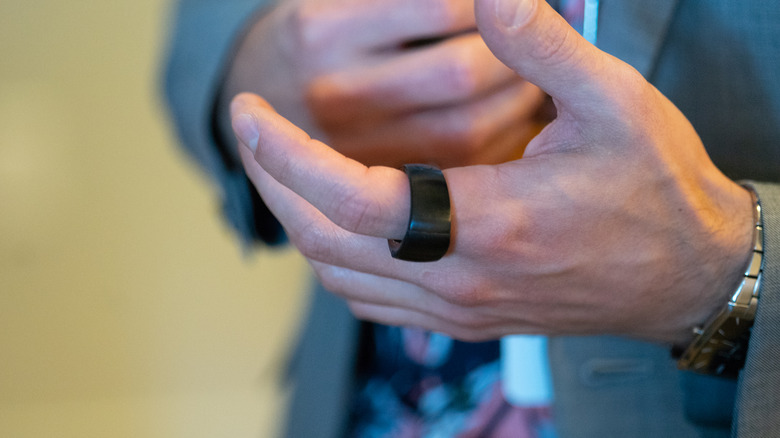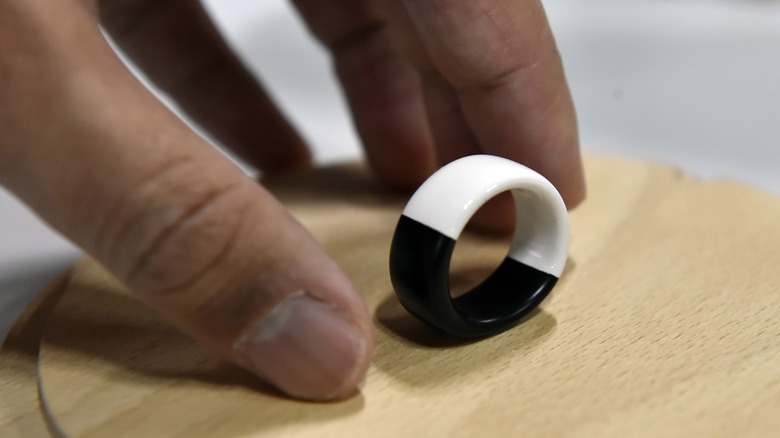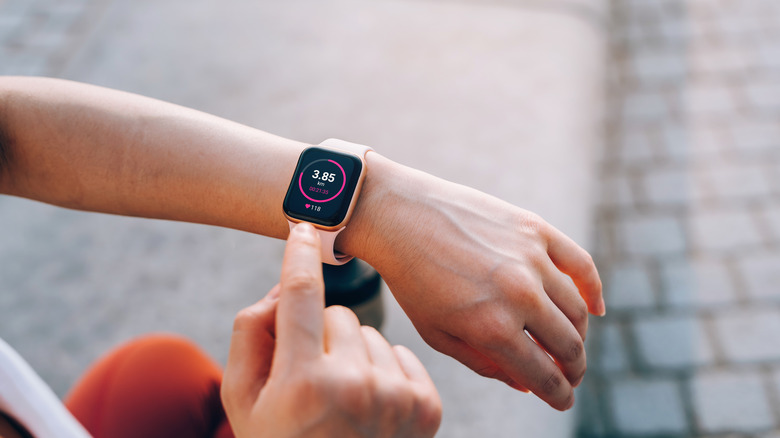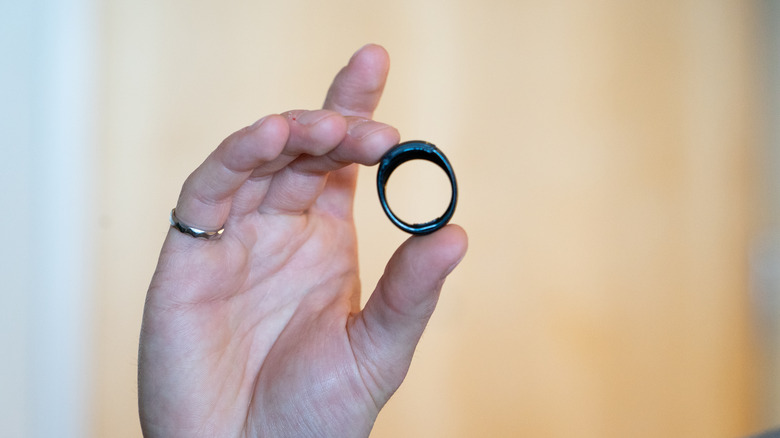What Are Smart Rings, And Why Aren't They More Popular?
The wearable tech scene has been on a steady growth curve over the last few years. It's not surprising — the idea of sleek, discrete tech you wear on your person is classic sci-fi, so there's definitely a marketable appeal to it. However, as cool as wearable tech is, not every instance is immediately popular.
Take, for instance, the smart ring. It's exactly what it sounds like- a ring you wear on your finger that's loaded up with smart technology like biometric scanners and NFC (near-field communication) chips. Everyone loves a good super-powered ring, be it Sauron's Ring or the elemental rings of the Planeteers, but for some reason, smart rings haven't quite made the impact you might expect. Multiple companies have experimented with the concept, while others allegedly have designs in the oven, but there has yet to be a smart ring that's truly set the tech world on fire. Where's the disconnect between this fledgling tech and the spotlight, and could it make it there someday?
What do smart rings do?
Like most smart tech, the idea behind smart rings is to better connect you, the user, to your electronics, primarily for the purposes of health and convenience. The former is one of the big draws, as most smart rings feature metabolic trackers, scanning your pulse from your finger and using it to gauge your overall state of being, especially during a strenuous workout. This information can be fed into a companion app or subscription service to help you track your health.
Besides that, smart rings can be equipped with NFC chips, which allow them to interface with other devices touch-free. It's the same tech that allows you to tap your credit card at a checkout to pay, and presumably, it could be set up to do the same. Some smart rings even feature gestural motion controls, allowing you to control other devices with a whimsical flick of your fingers. It's all very cool and fantastical, at least on paper.
Why aren't smart rings popular?
One of the big reasons that smart rings aren't really wowing the crowd is that they aren't doing anything we haven't already seen elsewhere. Yes, they can track your health and make touch payments, but so can most smartwatches. Yes, smart rings are more discrete and cost a little less, but smartwatches have many more features and are more easily customized thanks to their screens. The only real upshot to a smart ring over a smart watch at the base level is that a ring can be more comfortable than a full-on watch, at least depending on your personal preferences.
As for advanced features like motion controls, it's a cool idea, but the unfortunate fact of the matter is that it's not really cost-conscious to go investing several hundred dollars in something that takes practice to use and may not work properly instead of just picking up your regular TV remote or computer mouse. It's definitely a concept that could be game-changing someday, but until it's developed enough to be mainstream-ready, it's just not worth it.
Will smart rings catch on?
At the moment, smart rings aren't much more than a lesser-known subset of the wearable smart tech sector, rather than a standout development like smartwatches. However, that doesn't mean nobody has been trying to innovate with them. Multiple companies like Oura, Fujitsu, Nod, and even Amazon have taken a swing at the concept in the last decade, though the responses have been underwhelming.
According to a recent report from The Elec, Samsung will be next to take a crack at the smart ring concept in the not-too-distant future. This new device is allegedly named the Galaxy Ring. Not much is known about it at the moment beyond the fact that its circuits will be manufactured by Japanese company Meiko. The Samsung branding alone may help in marketing the Galaxy Ring, but if the company wants it to become a household name, it will need to innovate the concept in ways that haven't already been established by other smart tech or wearables, including its own Galaxy Watch line.
Any device needs to go beyond the usual metabolics and touch payment. Perhaps it could be useful as a security device for your home or phone. Or, alternatively, it could offer similar features to a smartwatch, but with a drastically reduced price point to entice early adopters. Smartwatches are expensive, after all, so a similar device with a cheaper tag could be appealing.



